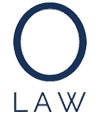The residence permit for freelance activities in Germany
I – Introduction
If a foreigner wishes to pursue freelance activities in Germany, he or she can apply to the competent authority for a so-called „residence permit for the pursuit of freelance activities“ in accordance with Section 21(5) of the Residence Act. Freelance visas are usually issued for three months, which in turn can be converted to a residence permit and extended for up to three years.
The wording of Section 21(5) of the Residence Act states:
„A foreigner may be granted a residence permit for the purpose of exercising a liberal profession in derogation of paragraph 1. A required permit to exercise the liberal profession must have been granted or its granting must have been promised. Paragraph 1 sentence 3 shall be applied accordingly. Paragraph 4 shall not apply.“
§ Section 21, paragraph 1, sentence 3 of the Residence Act stipulates that the financing of the implementation of this activity must be secured by equity capital or by a loan commitment.
Which liberal professional activities are recognised, which exact conditions are attached to them, which means of financing meet the requirements of the standard and to what amount these financial means must be available are answered in the following sections.
II – Which professions fall under liberal professions?
Whether a profession falls under liberal professions in Germany is determined by the group of persons listed in Section 18(1)(1) of the Income Tax Act.
‘’Freelance work includes scientific, artistic, literary, teaching or educational work carried out independently, the independent professional activity of doctors, dentists, veterinary surgeons, lawyers, notaries, patent attorneys, surveyors, engineers, architects, commercial chemists, auditors, tax consultants, consulting economists and business economists, sworn accountants, tax agents, non-medical practitioners, dentists, physiotherapists, journalists, photojournalists, interpreters, translators, pilots and similar professions.“
Thus, if one of the above-mentioned professions is exercised, an application can be made under Section 21(5) of the Residence Act.
III – Which legal requirements must be met?
Freelancers are exempt from the trade licence. However, they are obliged to register their activity with the tax office. The authority issues a tax number and is authorised to collect corresponding taxes from the income of freelance activities. Furthermore, there are liberal professions which require membership of a specific chamber or a qualification which must first be recognised before this activity may be carried out.
IV – What documents must be submitted for the application?
Regarding the application itself, the following documents are required:
- A fully completed visa application form
- A valid passport
- Two biometric passport photos
- Proof of payment of the application fee
- Proof of travel health insurance/ health insurance abroad
- If applicable, letters of recommendation from previous employers
- If applicable, portfolio on previous employment, printed samples, etc.
- If a profession is practised in which specialist knowledge is indispensable, a permit, licence or other documents proving specialist knowledge (e.g. in the field of medicine, law, etc.) must also be submitted.
- Certificates of relevant training
- Proof of financial means to cover the implementation of the freelance activity and living expenses after, e.g. by submitting one of the following documents: bank statements, profit and loss statement on the forecast of monthly losses and profits from the planned freelance activity, proof of adequate pension provision (only persons over 45 years of age who are not exempt from providing proof)
- If applicable, proof of a freelance plan
- If applicable, proof of declarations of commitment from future employers, clients.
V – What are the costs for the visa or residence permit?
The fees for the visa are 75.00 euros. Fees of up to 100.00 euros may be incurred for the residence permit, cf. § 45 Residence Ordinance. Furthermore, there may be costs for advisors, which must be taken into account.
VI – Procedure of the entry process for immigrants from third countries requiring a visa
In the visa and entry process, on the one hand the general requirements according to § 5 Residence Act must be fulfilled, i.e. a valid passport must be available, the financing of the implementation must be secured and there must be no reason for expulsion. Furthermore, the individual sections can be divided into five steps:
Step no. 1: Check the prerequisites
The prerequisites for freelance work are:
- Permission to practise the liberal profession (evidence by training certificate).
- Secured financing of the project
- As well as secure financing of the living costs.
- For applicants over 45 years of age, proof of adequate pension provision is also required. This means that either a monthly pension of 1,340.47 euros or assets of 195,104.00 euros must be available at the age of 67. The following nationalities are exempt from the proof: Turkey, Dominican Republic, Indonesia, Japan, Philippines, the United States of America and Sri Lanka. Please note, however, that documents must still be submitted because the authorities insist on this.
Step No. 2: Request an appointment at the German Embassy
After all documents have been prepared, an appointment must be made with the consular and visa section of the embassy of the home country. Information on current waiting times can be found on the websites of the respective consulates.
Step No. 3: Apply for a visa in the country of residence
To apply for a visa in the country of residence at the consulate, all documents must be brought along in full. In addition, a fee of 75.00 euros must be paid.
Step No. 4: Entry into Germany
As soon as the entry visa becomes valid for exercising the freelance activity in Germany, the journey to Germany can be planned. It should be noted that applicants must have health insurance from the time of arrival in Germany.
Step No. 5: Applying for a residence title in Germany
An application for a residence permit must then be made to the competent foreigner’s authority after entry. This is the last step in applying for a residence permit for the purpose of exercising a freelance activity pursuant to Section 21, Paragraph 5 of the Residence Act. The aliens‘ registration office will provide the list of further documents required. In addition, a fee is due for the application. The fee is approximately 100.00 euros (§ 45 Residence Act).
Incidentally, the urgent advice: The residence permit must be applied for before the visa issued for entry expires.
VII – Conclusion
As a freelancer, you will benefit from the reduced bureaucratic burden that usually accompanies the application for other residence titles. Nevertheless, it is essential to prepare the necessary documents carefully and to plan the visa and entry process sensibly. If you need help in this regard, a lawyer will be able to advise you competently.
Written by Linda Naomi Henschel
O.Law is a modern and dynamic law firm working in cooperation with highly motivated, professionals offering legal advice in the heart of Dusseldorf. We are characterized by our cooperation with a tax advisor and a network of lawyers in Eastern Europe.
O.Law supports in all legal requests regarding commercial law, focusing on our international cooperation. In view of the intensity of German-Turkish trade relations and the importance of them, we established a Turkey Desk.
Solutions that are efficient and economically sensible, with creative approaches are defining O.Law’s hallmarks. O.Law offers legal services in German, Turkish and English and can support double culturally. To speak a common language is important to us.
O.Law – International Law Firm
Attorney at Law Hülya Oruç, LL.M.
Goethestr. 30
40237 Düsseldorf
+ 49 211 976 358 -19
info@olaw.eu
www.olaw.eu
O.Law is a law firm based in Düsseldorf. Working for entrepreneurs worldwide, making their dreams come true.
We speak your language


